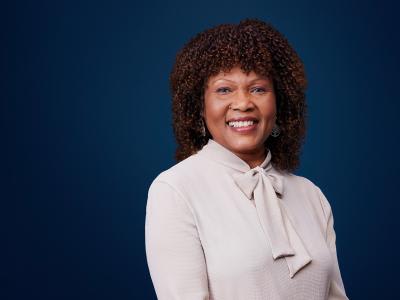Frequently asked questions for trainee accountants
The name RSM comes from the initials of our three original founding member firms:
- Robson Rhodes (United Kingdom)
- Salustro Reydel (France)
- McGladrey (United States)
We are a firm and network with a strong work ethic who truly value the contribution that each of our people have to offer. Our values impact on everything we do and are integral to the way we act with each other and our clients. These values are:
- Respect
- Integrity
- Teamwork
- Stewardship
- Excellence
As an employee looking to grow and develop, our firm has an open-door policy which gives you direct access to directors, supervisors and managers when you need guidance.
We also have a sociable work environment. Our staff regularly engage in fun initiatives such as team building events, casual Fridays, virtual quizzes, as well as numerous social responsibility activities throughout the year.
Our focus is on clients who fall into the middle market and we have a broad spectrum of local and international clients. As a trainee accountant, you will gain exposure to clients across a number of different industries, such as:
- Manufacturing
- Retail
- Mining
- Financial services
- Private education
- Family-owned business
- Public Services
- Forestry
- Telecommunication
- Pharmaceutical
- Aviation
- Entertainment
The RSM Educational Trust was established in 2016 to assist black South African female students with funding during for their Post Graduate qualification. You can read more about the trust here. RSM is also a long-time sponsor of the SAICA Thuthuka Bursary Fund which was created to support students from disadvantaged communities.
We look for individuals who are able to perform well in a team, have high levels of commitment, are ambitious, take pride in their work, and most importantly, are passionate about becoming Chartered Accountants. At RSM, we also value unique thinking and fresh perspectives and look for people who can bring their own unique ideas to the table.
RSM undertakes various wellness programmes and initiatives throughout the year, such as Health Risk Assessments, vaccination initiatives and mental wellness presentations. We also have an in-house psychologist who is able to assist staff who may be going through a tough time.
RSM only considers students who will be completing their Post Graduate qualification before commencing with their training contract.
The number of trainees that we hire each year varies but we employ roughly the following per office:
Cape Town - 15 to 20 trainees
Johannesburg - 30 to 40 trainees
First year trainee accountants start their contracts on 1 February each year.
You will be part of an audit team where you will get the opportunity to develop your professional competence while applying your technical knowledge. While learning on the job, you will be guiding by senior staff through the full process. You will also receive extensive training throughout the year to ensure there are no knowledge gaps.
The South African Institute of Chartered Accountants (SAICA) is our governing body, they monitor and regulate each step to achieving the CA(SA) designation, among a couple of others. They do this by:
- Assessing the universities, their curriculums and how they assist candidates through the process
- Accrediting and monitoring training offices with whom candidates can complete their training contracts
- Assessing candidates after they complete their university studies and during their articles by way of two assessments, namely the Initial Test of Competence (ITC) and the Assessment of Professional Competence (APC)
- Developing and monitoring the competency framework the trainee accountants will be developed through during their training contracts
- Guiding and monitoring their qualified members in their Continuous Professional Development in line with their tagline “Lifelong Learning”
SAICA not only provide the journey but they provide assistance along the way, and after you have earned your designation. This includes networking events, webinars and training events on new technical matters.
Yes, RSM does pay for your 1st ITC / APT Board Course, as well as the exam.
Unfortunately RSM does not cover relocation costs.
It is not compulsory, but it is preferable as you will often travel to clients.
RSM take part in the annual SAICA salary survey which enables us to offer market related salaries. When a formal offer is made, the salary will be indicated in the offer.
Study leave is granted to trainees to prepare for and write the ITC and APC exams.
Depending on the operational needs of the firm growth opportunities are available in various departments such as Auditing, Tax, Accounting and Financial Outsourcing, Risk Advisory, Trusts and Data Analytics.
RSM have a secondment programme with a number members firms across the RSM network. Staff from South Africa have previously had the opportunity to work in numerous countries including Ireland, Australia, United States, New Zealand, United Kingdom and the Netherlands.
RSM South Africa have a successful Data Analytics department and trainees can be seconded to the data analytics department. Here they will be exposed to the software we use, get an overview knowledge of data analytics and how to incorporate Data Analytics in the day-to-day audit.
As SAICA 2025 also require Data analytics overview knowledge, RSM South Africa execute and offer this exciting field for trainees.
The Independent Regulatory Board for Auditors (IRBA) is the regulator for auditors and are responsible for facilitating and monitoring the Registered Auditor (RA) designation. This involves:
- Developing and administering a competency framework of their own for professionals to qualify as RAs (with the prerequisites being either CA(SA) or ACCA designations)
- Establishing and expanding on ethics and auditing standards which are comparable to those of international standards
- Monitoring the RAs through inspecting audit files on a recurring basis. This serves to identify areas where audit quality can be improved, as well as in an effort to identify those with improper conduct




